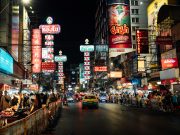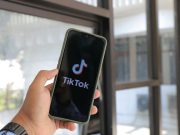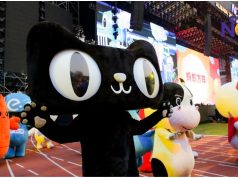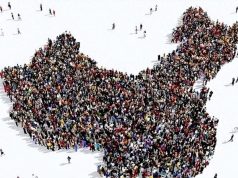(SINGAPORE, 13.11.2025)Chinese media have observed that this year’s 618 and Singles’ Day shopping festivals in China did not quite sparkle as they once did — especially the latter, which passed quietly on November 11 with little fanfare.
However, experts suggest that this does not signal the decline of China’s e-commerce boom. Instead, it highlights just how integrated online shopping has become in the daily lives of Chinese consumers.
When Singles’ Day, or Double 11, which takes place each year on November 11, no longer generates the same level of excitement, it signals that e-commerce has become so ingrained in everyday life in China that it no longer requires an annual spectacle to grab attention, said Chinese tech media platform Leitech.
Double 11 began in the 1990s, when a group of Chinese university students created it as an “anti-Valentine’s Day” to celebrate singlehood. In 2009, Alibaba turned it into a massive online shopping event, which has since evolved into the world’s largest annual retail festival, with global retailers offering major discounts and live-streamed promotions.

The 618 Shopping Festival, which takes place around June 18, is another major e-commerce event in China. Originally launched by JD.com in 1998 to celebrate the company’s founding, it has grown to include other online giants like Alibaba’s Tmall and Pinduoduo.
This year, however, Double 11 seemed unusually low-key, according to Leitech. Some media outlets even described it as “surprisingly quiet,” despite retail platforms ramping up efforts in the lead-up to the event to capture consumer attention.
Looking at the numbers, though, the idea that “Double 11 is losing its momentum” does not quite hold up. As of 11:59 PM on November 11, 2025, JD.com’s Double 11 sales had set a new record, with order volume up nearly 60% and the number of purchasers rising by almost 40%.
The twist? JD.com’s Double 11 sale began on October 9, almost a month before the official “Double 11” day itself.
Many Chinese netizens joked that “this year’s Double 11 ended before it even began,” while others commented that shopping festivals were starting to feel more like just another shopping routine.
The thrill of staying up late to snag half-price deals had clearly faded, they noted. These days, during Double 11, people are more likely to shop spontaneously, rather than waiting for the exact moment the clock strikes midnight on November 11, as they once did.
For Leitech, it isprecisely this “lengthened celebration period” that has drained Double 11 of its festive allure. As Chinese consumers have become fatigued by prolonged pre-sale campaigns, the anticipation that once made the event so attractive has diminished. In short, Double 11 has lost its original spark.
In the past, Double 11 charmed because it offered the “lowest prices and biggest deals of the year.” Brands cleared out inventory, e-commerce platforms fought for traffic, and consumers raced to make purchases — all within a single day, sometimes within the first hour after midnight.
By 2025, however, this model of a “one-day shopping explosion” has been completely upended. Pre-sale discounts starting a month ahead of time, platform promotions, and government subsidies have reshaped China’s e-commerce landscape over the past couple of years.
In 2024, the Chinese government launched several long-term programs, such as “Trade-In for New” and the “Green National Subsidy,” which cover nearly all consumer categories, from home appliances to electronics and mobility.
Unlike short-term events like Double 11, these subsidies are available for up to six months and can be used until the allocated local funds run out. Even better, the purchasing process is much simpler than navigating the shopping festivals.
As a result, many Chinese consumers have shifted some of their “big-ticket purchases” away from Double 11 and toward the designated period of these national subsidies.
At the same time, e-commerce platforms themselves have adopted new strategies. Instead of concentrating their discounts on specific days, they now offer continuous year-round promotions. Examples include JD.com’s “Hundreds of Billions in Subsidies,” Pinduoduo’s “Everyday Singles’ Day,” and Douyin Mall’s “Limited-Time Flash Sales.”
While Double 11 may no longer hold the same appeal, Leitech argues that the event still serves a useful purpose — it has become a platform for consumers to explore new products.
Over the past decade, Double 11 was primarily about grabbing a bargain — anything from shampoo to smartphones to TVs. Today, however, as consumers become more discerning and brand competition intensifies, there is a shift toward “better lifestyle” spending. Consumers are increasingly focused on products like floor cleaners, dishwashers, dryers, and action cameras. They have shifted from pure bargains to lifestyle-oriented shopping.
Data released by JD.com confirms this trend. By the end of November 11, sales of AI products in JD’s 3C (computer, communications, and consumer electronics) category had increased by over 100% year-on-year. Among the best sellers were smart glasses, which grew by 346%, digital cameras (up 238%), and action cameras (up 220%). These “niche” categories are now being discovered by more Chinese consumers, thanks to the exposure and subsidies during the Double 11 sales.
Ten years ago, shopping festival promotions boasted that “a customer placed an order on Singles’ Day and received it within an hour.” Today, flash sale pages on platforms like Taobao and JD.com often promise deliveries within just 30 minutes. According to Leitech, this shift reflects the accelerating pace of e-commerce consumption.
Looking ahead, shopping festivals like 618 and Singles’ Day have largely served their “historical purpose,” noted Leitech. According to the National Bureau of Statistics, China’s e-commerce transactions reached 46.41 trillion yuan (about S$8.48 trillion) in 2024, a 3.9% increase from the previous year. Online retail sales alone grew by 7.2% year-on-year, hitting 15.23 trillion yuan.
With such impressive figures, China’s e-commerce platforms no longer need to rely on two major sales events to demonstrate their relevance. Even Double 11, once dubbed the “Impulse Buying Festival,” has evolved into a “Day for Essential Purchases,” Leitech concluded.





































